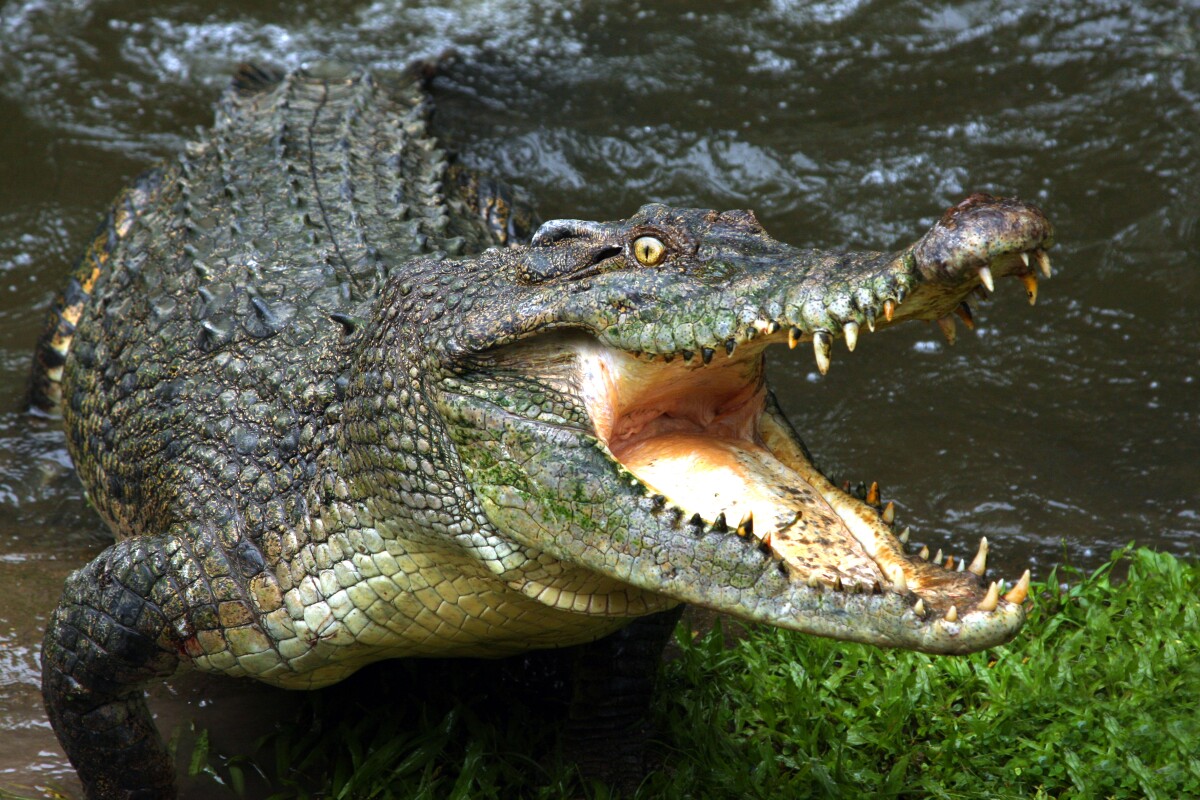They’ve been on the planet for around 83 million years, and their giant ancestor Deinosuchus is believed to have even dined on dinosaurs. But while the crocodile is best known as an aggressive apex predator, the reptile has plenty of attack power in its immune system too.
For the first time, scientists have discovered a unique component of a saltwater crocodile’s physiology that helps its immune system identify and kill fungal infections. It's this that allows them to thrive in microbe- and pathogen-laden waters infection-free, despite frequently sporting wounds from territorial disputes in the wild.
Researchers at La Trope University in Melbourne, Australia, have isolated a unique pH-sensing mechanism made up of small proteins, known as defensins, that detect infection and alert the immune system. The alarm-sounding role of the defensins is so far unique to these reptiles and hasn’t been identified in any other plant or animal.
The findings hold great scope to develop effective, targeted treatment for fungal infections in humans, which are becoming steadily more frequent due to increased antibiotic resistance.
“Crocodiles have great antifungal defenses,” said Scott Williams, lead author and researcher at La Trobe University. “We solved structures of crocodile defensins and they look surprisingly like the same proteins in humans, which means we could use them as a template to treat fungal infections in humans.”
Discovered in the 1980s, defensins are an integral part of the immune systems of plants and animals, and help protect against microbial pathogens such as bacteria and fungus. Research has largely focused on human defensins, but little is known about the roles of the proteins in many other species.
In saltwater crocodiles, defensin CpoBD13 possesses antimicrobial activity that registers environmental pH levels. It enables the animal’s immune system to recognize which area or cells are infected and then attack and kill the fungal pathogen.
“[Crocodile] defensins are able to change their activity based on the pH environment, so we could engineer other defensins to turn off or on depending on the presence of infection,” Williams said. “Some therapeutic treatments act on healthy cells by accident whereas this mechanism could help to reduce these off-target affects and focus on what’s harmful.”
The researchers believe their discovery could lead to the development of synthetic defensins with pH-dependent activity that could be used to treat serious infections in humans.
The study was published in Nature Communications.
Source: La Trobe University





